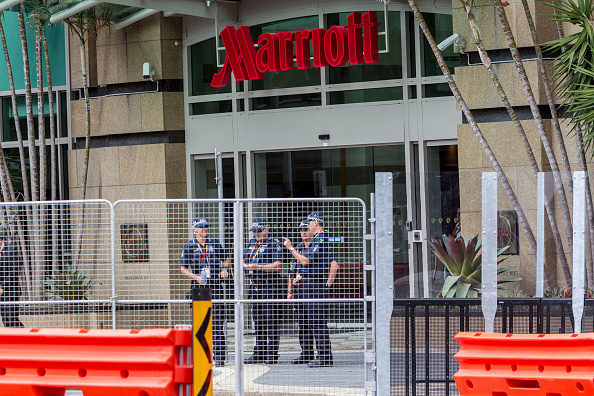
The internet is up in arms over news that the Marriott chain of hotels and spas is petitioning the FCC to make it so they can block personal Wi-Fi hot spots around their hotels and resorts. Everyone’s immediate reaction seems to lean towards: “I can watch RedTube at your hotels if I want!” This led to the public opinion that Marriott was planning to privatize their network capacity, ultimately forcing its guests to pay higher prices to have less restricted access to Wi-Fi. As someone who works on the interwebz for a living, I can understand (more than most) why this is upsetting people. The worst part is, this isn’t the first time The Marriott pulled something like this.
Alas, Marriott’s PR people caught wind of the public outcry and decided it might be smart to quell the rising waters and hush the fevered citizens who were swearing off Marriott by releasing a press statement on December 30th, which stated, in part:
We understand there have been concerns regarding our position on the FCC petition filing, perhaps due to a lack of clarity about the issue. To set the record straight it has never been nor will it ever be Marriott’s policy to limit our guests’ ability to access the Internet by all available means, including through the use of personal Mi-Fi and/or Wi-Fi devices. As a matter of fact, we invite and encourage our guests to use these Internet connectivity devices in our hotels. To be clear, this matter does not involve in any way Wi-Fi access in hotel guestrooms or lobby spaces.
The question at hand is what measures a network operator can take to detect and contain rogue and imposter Wi-Fi hotspots used in our meeting and conference spaces that pose a security threat to meeting or conference attendees or cause interference to the conference guest wireless network.
So at first Marriott was all “we gonna jam your Wi-Fi, fool” and then when people were all like “screw you guys, we’ll stay somewhere else,” then they were like “No, no, we weren’t talking to YOU. We were talking to all the cyber terrorists who apparently come to our meetings.” And now they hope everyone will be like “Phew.” Some may call that summary an oversimplification, but few can call it in inaccurate one.
Via BoingBoing
